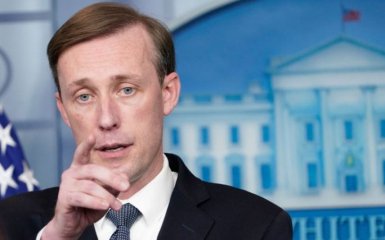According to US President Joe Biden's national security adviser Jake Sullivan, China refused to participate in the Peace Summit at the request of Kremlin dictator Vladimir Putin.
Points of attention
- China's refusal to participate in the Peace Summit was influenced by Kremlin dictator Vladimir Putin's pressure, revealing the complex relations between Russia, China, and Western countries.
- Statements from US President Joe Biden's national security adviser and the prime ministers of the Netherlands and Italy highlight skepticism towards Putin's 'peace proposals' and suggest a sense of panic and propaganda from the Russian side.
- The situation sheds light on China's stance regarding Russia's war in Ukraine and emphasizes China's significant role in global politics as a key player in the conflict dynamics.
- Western partners question the authenticity and effectiveness of Putin's proposals, with leaders describing them more as propaganda moves than genuine steps towards peace.
- The refusal of China from the Peace Summit underscores the intricate geopolitical landscape of Eastern Europe, with implications for the ongoing conflict and the involvement of major global powers.
Russia persuaded China not to participate in the Peace Summit
It is obvious that China is not here. And I assume that they are not here because Putin asked them not to come, and they made a commitment to Putin, - emphasized Sullivan.
According to him, this allows us to draw conclusions about Beijing's position regarding the criminal war unleashed by Russia against Ukraine.
And I think that says something about China's position on Russia's war in Ukraine. I think that countries should pay attention to this, - added Sullivan.
How do Western partners react to Putin's so-called "peace proposals".
According to Dutch Prime Minister Mark Rutte, Putin's statements indicate his panic.
The fact that Putin came out with this crazy "peace proposal" yesterday shows that he is panicking, the Prime Minister of the Netherlands emphasized.
Italian Prime Minister George Maloni also commented on Putin's proposals.
According to her, they are more like propaganda than real steps.
It sounds more like a propaganda move to me than a real one. If Putin's proposal is in the style of "we are ready for peace talks, if Ukraine recognizes the invasion and surrenders its occupied territories," then it does not look like a particularly effective proposal, Maloney said.
The Italian Prime Minister noted that the dictator's statement sounds more like a narrative that wants to create counter-information about who is actually responsible for this conflict.




